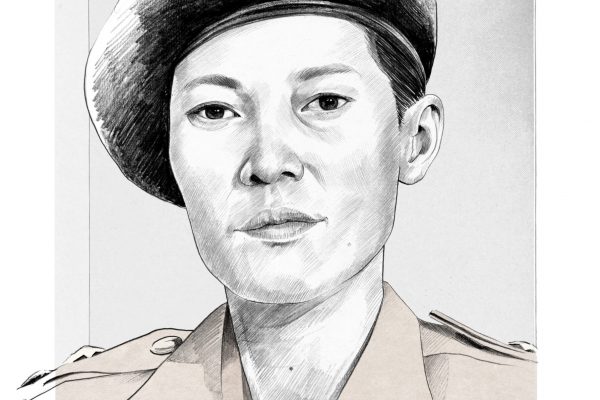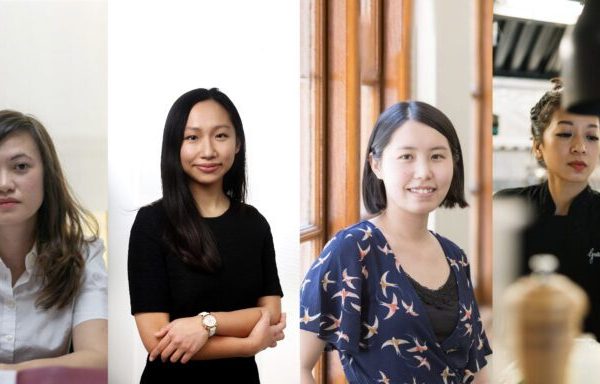Buying time: Cracking open questions about egg freezing
Over the past few decades, the scientific community has made major advancements in Assisted Reproductive Technology (ART) – fertility treatments where doctors handle eggs or embryos to help infertile couples conceive. Alongside in vitro fertilization (also known as IVF, a procedure that involves combining an egg with sperm outside the body), egg freezing is one of the fastest-growing reproductive technologies.
The procedure has skyrocketed in popularity in recent years. As of 2018, more than 20,000 women in the US have chosen to put their eggs ‘on ice’ for health or lifestyle reasons. In Asia, demand for the procedure is growing quickly. A major clinic in South Korea, for example, reported a 12-fold increase in egg freezing procedures between 2013 and 2017. And regional celebrities, including Hong Kong singer-actress Charlene Choi and Taiwanese actress and model Lin Chi-ling, have also opted to freeze their eggs.
While viewed by many as a game-changer for women’s reproductive freedom, egg freezing is not without controversy. Critics in patriarchal societies have blamed egg freezing for promoting late motherhood and discouraging work-family balance, while others believe the procedure only benefits the wealthy.
Ariana takes a closer look at a few of the most common questions about egg freezing, shares the latest research, and asks experts to weigh in.
How does the egg-freezing process work?
Officially known as oocyte cryopreservation, egg freezing can be a time-consuming process. First, women must undergo blood tests and initial exams, followed by hormone therapy every day for around two weeks to prepare for the extraction procedure.
About 15-30 minutes long, this procedure is conducted under anesthesia. After the retrieval procedure, the clinic will then freeze and store the eggs, so the woman can use them in the future. In some cases, the doctor can harvest a sufficient number of optimal eggs – about 10 to 20 – on the first round. Older women may need to complete multiple egg-freezing cycles to reach their desired egg count.
Sometimes doctors recommend that women freeze their eggs due to health issues. For instance, treatments like chemotherapy, radiation and stem cell transplants can lead to infertility. Other times, it’s elective – the latter is known as “social egg freezing.” Essentially, a healthy woman elects to undergo oocyte cryopreservation so she can potentially have children at a later age.
At what age should women freeze their eggs?
The ideal age to freeze one’s eggs is roughly between 25 and 35, because scientists believe that fertility starts to rapidly decline after the age of 35. By freezing eggs earlier, women would have a higher chance of collecting a high number of mature eggs and those eggs would have a higher chance of surviving the egg thawing process as well as a higher rate of fertilisation.
Most women tend to freeze their eggs significantly later. Such data does not exist in Hong Kong, but both UK and Australian studies have found that the average age for women to freeze their eggs is 37.
Critics argue that this is way too late – that having children later in life, past the age of 30, can lead to an increased chance of health risks, such as miscarriage and birth defects.
Studies have shown that about 17 per cent of the eggs of women in their early 20s will have chromosomal abnormalities – known to cause birth defects and miscarriages – this percentage jumps to nearly 80 per cent in a woman’s early 40s.
Will egg freezing lead to a phenomenon of ‘older’ mothers?
Critics also argue that older mothers may also be less energetic than younger mothers when it comes to parenthood. Setting fertility concerns aside, Annie Chan, an associate professor specialising in sexuality and gender studies at Hong Kong’s Lingnan University, argues that older mothers are perfectly capable of taking care of children.
“We don’t have a problem with men becoming fathers at an older age; we may even think that it’s good because they are more established, wealthier and offer more stability. So why do we think that women at an older age will not make a good mother?”
Are there any age limits on egg freezing or harvesting?
In Hong Kong, women can be single when they initially freeze their eggs but need to be married to actually fertilise them, according to the Human Reproductive Technology Ordinance, which passed in 1997. Once a woman’s eggs have been frozen, she can store them up to 10 years, or until she reaches the age of 55.
Chan says this age limit seems sensible. “It’s not like you can store your eggs forever,” says Chan. “It’s highly unlikely for a woman around 60 or 70 to get pregnant using frozen eggs [due to biological reasons].”
We don’t have a problem with men becoming fathers at an older age; so why do we think that older women will not make good mothers?
Annie Chan
How much does egg freezing usually cost?
The cost of egg freezing varies by country and region. In the US, the procedure can cost US$8,000 (HK$62,000) or more, plus storage costs around US$600 (HK4,650) per year. It’s similarly priced in Hong Kong, where one can expect to budget between HK$60,000 and HK$160,000, including testing, extraction, freezing, storage and monitoring.
However, in Taiwan, the service is about half that – egg freezing testing and procedure costs about HK$27,000, adding that storage costs HK$2,600 per year.
Does egg freezing contribute to economic stratification?
“For sure, when you are wealthier, you will have access to all kinds of medical and reproductive technologies,” says Chan. But based on her observation, the high prices do not deter most people. “I know some friends in Hong Kong who borrowed money to do ART. People will simply try everything to access ART and enhance their [chances of fertility].
Although low-income women would have difficulty accessing these services, Chan says that fertility is less likely to be a pressing concern – jobs, food and immediate needs for survival come first. “Low-income women are likely to be more concerned about their livelihoods,” she says. “But, for sure, if they really want to have an egg freezing procedure, it would be very difficult.”
Will egg freezing become more affordable with time?
Chan thinks so. She predicts that the cost of egg freezing will become more financially accessible as more service providers emerge and the process becomes more mainstream.
In Hong Kong, for example, egg freezing is not included in the public health system. However, there are more than a dozen private providers of this service, including Hong Kong Sanatorium & Hospital and Hong Kong Reproductive Medicine Centre Limited.
Do employer-subsidised egg-freezing programmes incentivise women to prioritise their careers?
According to a US survey conducted by human resources firm Mercer, the number of major employers in the country offering egg freezing subsidies almost tripled from 6 to 17 per cent between 2015 and 2018.
Critics argue that companies are evading their responsibility to provide family-friendly employment conditions where women could raise children and flourish in their careers at the same time.
Chan says such policies are unlikely to discourage career-oriented women from starting a family if they indeed want children. Rather than a gender-equality obstacle, she sees these employee benefits as “gimmicks” for attracting female employees.
“The main reason for many women to do social egg freezing is that they haven’t found the right partner to have children with yet,” she says. “A motivation to prioritise their career over having children is less common.”
What percentage of women who choose to freeze their eggs are single versus in a partnership?
Relevant statistics do not exist in Hong Kong, however, a survey conducted by Human Fertilisation and Embryology Authority, a public body under the Department of Health and Social Care in the UK, found that between 2010 and 2016, 46 per cent of the women who elected to freeze their eggs were single. By comparison, 53 per cent were in a relationship with a male partner, 1 per cent were in a relationship with a female partner.
Does egg freezing offer more reproductive freedom or false promises?
In a broad sense, Chan believes that egg freezing allows women to take control of when they want to have children and enables women more time to find their desired partner. “Egg freezing offers women a choice through technology. In this way, it is a victory in women’s reproductive autonomy.”
But on an individual level, she doubts whether egg freezing can really help women have children at an older age. “The process of egg freezing is not as simple as many imagine and the success rate [for successfully fertilising frozen eggs at a mature age] is not so high,” she says.
Will egg-freezing create false hope for women… have companies informed clients about the success rate of egg freezing? These are the things that we need to pay attention to.
Annie Chan
Why is that?
When it comes time to retrieval, the eggs must survive the thaw before being injected with sperm to achieve fertilisation, which may or may not be successful. Then the woman must carry the baby to term, which is often out of a mother’s control.
According to the American Society for Reproductive Medicine (ASRM), an NGO dedicated to the advancement of reproductive medicine, there is only a 2 to 12 per cent chance that a single egg retrieved from freezing will result in a live birth for women under 38. “As women get older and egg quality goes down, the pregnancy rate per frozen egg drops further,” writes the ASRM.
Any other issues to consider?
In addition to understanding the egg-freezing process and potential obstacles, Chan says it’s also important to take care when choosing a clinic since most operate without substantial government oversight.
“Will [unregulated] egg-freezing [advertisements] create false hope for the women who wish to have children at a later age?” she worries. “Has the company informed their clients about the procedure and the cost involved, and the success rate of egg freezing? These are the things that we need to pay attention to.”

